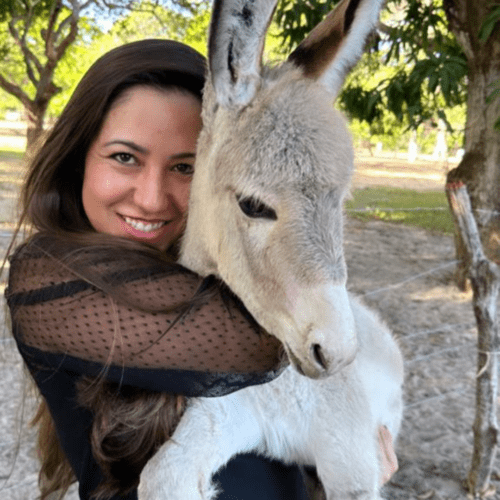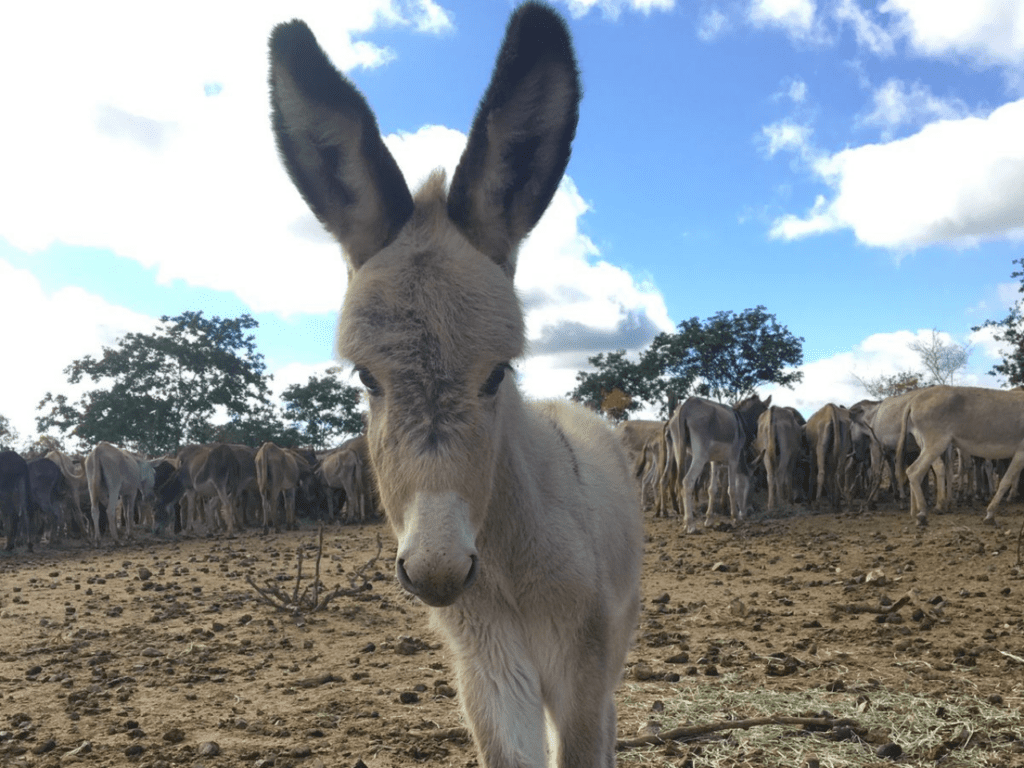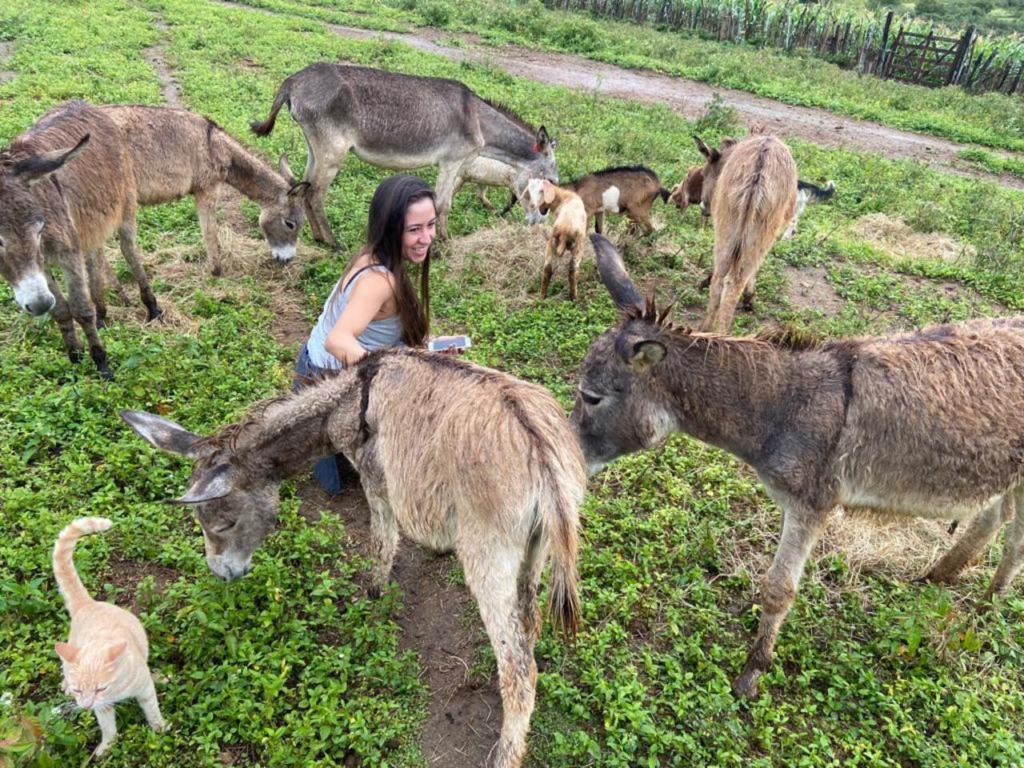China’s demand for donkeys leaves animals skinned and neglected: ‘Market pressure endangers these gentle creatures and the human communities that rely on them’
Adding a human layer to this tragedy, we discovered two Chinese workers on the farm, communicating only in Mandarin. Tasked with caring for the animals, they too were victims, deprived of basic needs and living in squalor—ironic given the hidden wealth fueling this cruel enterprise.
- 10 months ago
September 23, 2023

SALVADOR DE BAHIA, Brazil — From the earliest days of my Brazilian upbringing, the earthy scent of fur and soil formed the tapestry of my world. Bird songs became my lullaby, and the warmth in an animal’s gaze served as my sanctuary. Then, a clash of aromas at age seven—iron-rich chicken hearts sizzling in a pan—sowed seeds of an ethical dilemma that lingered in my life like an unshakable aftertaste.
Confronting this moral dilemma felt like walking on a tightrope, especially in a country where giving up meat suggested rebelling against a cultural identity. At 16, societal scrutiny weighed on me like a heavy coat in Brazil’s tropical heat. But by 20, I shed that coat forever, and by 25, veganism swept through my life like a liberating breeze.
Each step along this ethical journey came with its revelations. Uncovering the harsh realities of animal agriculture solidified my commitment, propelling me further into a life interwoven with animal advocacy.
Read more animal rescue stories at Orato World Media
Cruelty in donkey trade ravages Brazil’s northeast but lab-grown donkeys deliver hope
Years later, my ethical journey led me to Brazil’s northeast. At The Donkey Sanctuary, the air felt different—denser, weighted with a new sense of purpose. I felt the coarse texture of donkey fur under my fingertips. Their expressive eyes met mine with a softness that spoke volumes. I experienced an inexplicable connection, and a role meant to last six months turned into five years.
In this world, traders steal, capture, or purchase donkeys for less than a dollar to cruelly supply China’s voracious demand for Ejiao. This unrelenting market pressure endangers these gentle creatures and the very fabric of human communities that rely on them. Their absence is felt everywhere—empty water buckets, quieter schoolyards—as children are forced to fill roles once occupied by these tireless laborers.
Yet, within the walls of our lab, science fuses with the hope of offering a groundbreaking alternative: lab-grown Ejiao. Here, bioreactors carefully nurture cell cultures, inching us closer to a future where no animal needs to suffer for human remedies. Each step, each breakthrough, reminds me of my journey. From the inquisitive seven-year-old to the resolute woman working to harmonize humanity’s relationship with the animal kingdom.
An unexpected scene: Brazilian donkeys endured horrifying conditions
A few years back, in 2019, a mission with the Public Prosecutor’s Office led me to a gut-wrenching scene in Bahia’s countryside: a fraudulent farm where about 800 donkeys endured horrifying conditions.
To my horror, the desperate donkeys, starved and parched, were driven to consume Mandacarú cacti. The likely presence of heavy metals in their water contaminated by nearby illegal mining exacerbated their frail condition. Despite our frenzied attempts to help, many could not survive this shocking neglect.
Adding a human layer to this tragedy, we discovered two Chinese workers on the farm, communicating only in Mandarin. Tasked with caring for the animals, they too were victims, deprived of basic needs and living in squalor—ironic given the hidden wealth fueling this cruel enterprise.
Yet in this bleak setting, a flicker of hope ignited: the birth of three resilient foals, one of which we named Karu after the cacti the adult donkeys forcibly consumed. Their brief lives, especially my bond with Karu, were a soothing balm for the emotional wounds.

Resilient survivors find new life in sanctuary, woman spearheads movement combating Brazil’s donkey extinction
Amid the grief over the lost foals, including Karu, a few survivors found hope when we placed them in a sanctuary. Each gaze we share silently reaffirms the value of our work. They bring me an almost indescribable joy, serving as living proof of compassion’s power.
I stay committed to these animals through the #SalveJegue campaign, which I initiated to fight Brazil’s donkey extinction. Public support has grown, offering a ray of hope and strengthening my resolve for the long haul. Each life saved reinforces my faith that we can make a difference, even in a flawed world.
To the reader: let these words be more than ink on paper. Feel them as an emotional call to action—be kind, compassionate, and ever-vigilant. Through my awareness, I’ve grasped the depth of my mother’s words: animals have many hearts. They share these hearts generously, leaving a lasting impact.














































































































































































































































































































































































































